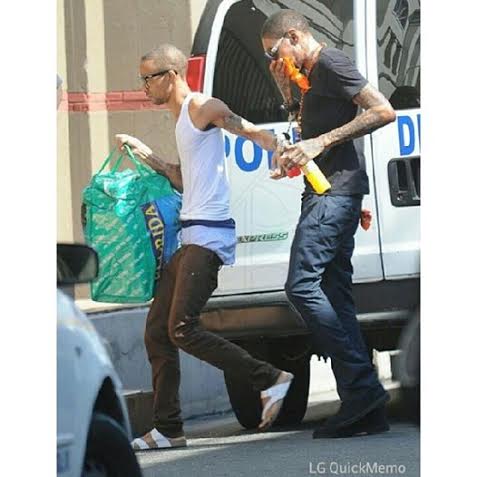
The economic situation in the Caribbean in 2014 was not helped by the illegal migration of people, with The Bahamas strongly defending its immigration policy that critics claimed was “unconstitutional” and dehumanising.
The policy, which came into effect on November 1, called on foreigners to show evidence that they had permission to live or work in the country.
Foreign Affairs and Immigration Minister Fred Mitchell said that he wanted to debunk the allegations made against the new policy, noting that the reputation of The Bahamas was being tarnished.
“Nothing is more important to us than that in the international arena, whether in the hemisphere or in the sub region or around the world. Reputation is everything. The respect which we have around the world depends upon our reputation,” he told the Organisation of American States (OAS).
But by year-end, the government was forced to defend allegations that it was herding illegal migrations in a cage like “cattle”.
President of the Grand Bahamas Human Rights Association (GBHRA), Fred Smith, said that in light of the recently-surfaced image showing suspected illegal immigrants penned in a mobile enclosure more suited to the transportation of livestock than human beings, the GBHRA subsequently demanded that Mitchell gave “a satisfactory explanation of the behavior of public servants under his charge”.
Trinidad and Tobago’s National Security Minister Gary Griffith also complained that the oil-rich twin-island republic was home to an estimated 110,012 illegal immigrants.
He went as far as inviting Jamaican officials to Port of Spain for talks after saying there were an estimated 19,000 Jamaicans residing there illegally, saying that they were dependent on State resources such as education and health care, may be employed and were not subject to taxes, which amounted to a loss of revenue of over TT$1 billion per annum.
In December, the Trinidad and Tobago Government spent TT$2.6 million in charting an aircraft to fly home 12 Ghana nationals who were living in Trinidad illegally.
Faced with severe criticisms, Attorney General Anand Ramlogan said that it was “mischievous, malicious and very dangerous” for allegations to be made that the Indo-dominated Government was also engaged in racial profiling in the deportation of illegal immigrants.
At the same time, Dino Bouterse, the son of Suriname’s President Desi Bouterse, was before a United States court on drug- related charges, terrorism and weapons trafficking allegations following his arrest in Panama in August.
Manhattan District Attorney Preet Bharara said that Bouterse was planning to support the Hezbollah, the Shi’a Islamic militant group and political party based in Lebanon, in launching attacks on the United States.
If found guilty of the terrorism charge, the president’s son could face 15 years in prison, in addition to the mandatory minimum term of 40 years in jail if he is convicted on the weapons and illegal drugs charges.
President Bouterse was also facing his own legal battles in 2014 as he made another effort to have dismissed the conviction and jail sentence imposed on him in absentia by a court in the Netherlands.
His attorney, Inez Weski, said that his client has filed an appeal against the 11-year jail term handed out by the court here in 1999. She said that Patrick van L, the Belgian who had given incriminating statements against Bouterse, has since recanted his story and for years has tried to clean the president’s slate.
In the meantime, Former Haitian President Jean Bertrand Aristide has been prohibited from leaving Haiti as law enforcement authorities probe allegations of corruption, misappropriation of public funds and drug trafficking during his 2001- 2004 presidency, immigration officials confirmed.
Aristide and several of his former colleagues have been accused of embezzling hundreds of millions of dollars from the State treasury through his Aristide for Democracy Foundation and other organisations.
Meanwhile, Jamaican dancehall artiste Vybz Kartel was jailed for life after he was found guilty on March 13 for the murder of Clive ‘Lizard’ Williams, a former member of his ‘Gaza’ organisation.
Kartel, whose real name is Adidja Palmer, was charged along with Shawn Campbell, Kahira Jones and Andre St John. He will serve 35 years in jail before he becomes eligible for parole, while Campbell and Jones will serve 25 years, and St John 30.
Police say Williams was killed over the disappearance of two missing firearms. His body has not been found.

The truth is every country is within their rights to enact these policies. Everybody haffi look out fi dem own yawd fuss. Too many governments run dem country to wreck and dem expect other governments wah do good governance and have prosperous nations fi help dem. Put een di hard work fi build a strong, prosperous and safe nation suh your people dem nuh haffi run to stranger lands fi simple survival.